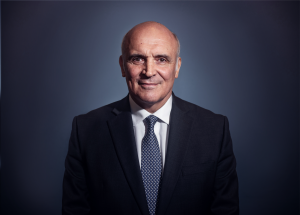BUENOS AIRES, Argentina (AP) — Argentina’s ruling party wants $23 billion in private pension funds brought under government control by the end of November — and given congressional sentiment, some kind of nationalization seems a sure bet.
Seizing the money seemed a foregone conclusion as lawmakers began debating the proposal on Tuesday. The main question was how to manage the investments it takes over from 10 private companies that currently manage retirements for one in four Argentines.
"What’s being debated, and what’s shaping public opinion, isn’t so much about whether the funds should be private or public, but about how those funds are going to be used," said political analyst Ricardo Rouvier.
Most Argentine political parties support President Cristina Fernandez’s plan because across Latin America, people are questioning the benefits of a 1990s wave of privatizations advocated by Washington, which were seen to benefit rich people with political connections who often ended up buying companies on the cheap.
And as financial turmoil tanks investments across the world, state control over pensions seems safer than banking with private fund managers, political analyst Graciela Romer said.
"The financial crisis has laid bare the frailty of the private system," Labor Minister Carlos Tomada told lawmakers Tuesday.
Argentina’s Social Security administrator said Tuesday that the total funds to be nationalized is $23 billion, not $30 billion as previously announced by the government. He explained the $7 billion discrepancy resulted from an initial overestimation of the funds held by the private pension funds — their nominal value was higher than their actual market value.
While most lawmakers agree on state control, opposition leaders want the money spent exclusively on retirees — not on public works projects or payments to service $28 billion in debt that comes due over the next three years, even as tax and export income falls.
Tomada also promised that retirements would not be pillaged to replace falling revenues, saying "this is workers’ money for the retirees of today and tomorrow."
But some lawmakers aren’t so sure.
"The pension funds aren’t going to the state, they’re going to fall in the hands of a bunch of thieves" in the administration, said opposition lawmaker Elisa Carrio, who wants a congressional commission to propose the best way to nationalize the funds.
Buenos Aires Mayor Mauricio Macri’s minority center-right party is the only major group that wants the current system.
Many Argentines have low expectations for any retirement plan after experiencing so much economic upheaval.
But the prospect of a government takeover has spooked investors. Global expectations of a U.S. interest rate cut pushed Argentina’s Merval index up 6.6 points Tuesday to close at 895.1, but it still remains 14.5 percent lower since Fernandez’s plan became public.
"The decision has been very inopportune in terms of timing," just when Argentina should be trying to convince investors it will maintain liquidity, said Antonio Cejuela, a trader at the Puente Hermanos Sociedad de Bolsa brokerage.
The government takeover has filled investors with the "sensation that there is no respect for private property," said Jose Luis Espert, an economic analyst with Espert & Asociados who criticized lawmakers for limiting their debate to the specifics of state control instead of challenging the "socializing of private funds.".

